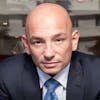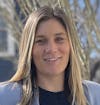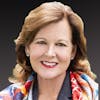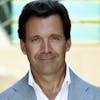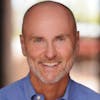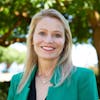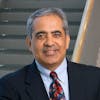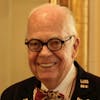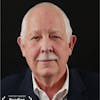Progress And A Path Forward - Alex Bastian, Hotel Council of San Francisco [San Francisco Sundays]
![Progress And A Path Forward - Alex Bastian, Hotel Council of San Francisco [San Francisco Sundays] Progress And A Path Forward - Alex Bastian, Hotel Council of San Francisco [San Francisco Sundays]](https://images.podpage.com/https%3A%2F%2Fimages.podpage.com%2Fhttps%253A%252F%252Fstorage.buzzsprout.com%252Fvariants%252Ftburqu44og8zg4p8x3yomwtcej8j%252Ff6fd9b4ca4e468e7e11c8350463c894b252ee834d352e0a8d889b97ac83aedef.jpg%3Fauto%3Dformat%26fill%3Dblur%26fit%3Dfill%26h%3D630%26w%3D1200%26s%3D60b5699d140f9eeafe7027d9e5fbc56b?auto=format%2Ccompress&w=100&s=1acb7217d1f10527d55a32fbc2eab811)
Today we're learning from Alex Bastian, the CEO of the Hotel Council of San Francisco.
- Follow Alex on LinkedIn
- Learn more about the Hotel Council of San Francisco
- View the 29th Annual Golf Tournament and other events by the Hotel Council
Listen to our other episodes in our San Francisco Sundays series.
Join the conversation on today's episode on the Hospitality Daily LinkedIn page.
Hospitality Daily isn't just a podcast! Every morning - Tuesday through Friday - I summarize the stories you need to know as a hospitality professional in a short email. Read today's issue and subscribe here.
Josiah:
San Francisco Sundays is a special series we're doing here in my hometown to show what it's like to work together to provide hospitality from the communities we're based in. Today we're learning from Alex Bastian, the CEO of the Hotel Council of San Francisco. Born and raised in San Francisco, Alex Bastian initially pursued a career in law, working as a prosecutor in the district attorney's office. He quickly climbed the ranks to senior management and, at the end of 2020, found himself at a crossroads, considering a variety of executive leadership roles, when an unexpected opportunity came up for Alex the job that ended up becoming his current role leading San Francisco's Hotel Council. Despite a satisfying, high-profile job in LA, Alex chose to return to his hometown and took on the challenge of leading the Hotel Council. In this episode, you'll hear what he's saying and hearing in his role, but to start us off, we go back to the moment he first returned to San Francisco.
Alex:
I came up in March of last year and I walked the streets of San Francisco and, if you recall, this was right after the smashing grabs and the city was in shambles. It broke my heart to say it was crazy to see what had happened to San Francisco and around that time occupancy rates in our hotels were about 25 percent. Right, and historically, to put it in perspective, this city has always been roughly around 80 percent and in the height of the pandemic it dropped to about 8 percent. And when I visited in March of last year it was around 25 percent. And I know that the city is a piece of gold. The city has always been a piece of gold. It was founded on the gold rush. The Niners are red and gold, right, and what's so unique about this is that piece of gold is in the mud. Right, it was in the mud then, partially our own doing, partially because of the pandemic and partially because of this national mud slinging that is occurring on the national media circuit. Right, but if we clean that piece of gold, if we keep it safe, if we hold it up in the light, it's going to shine bright on the world stage again. And since getting this job, we've seen a lot of steps in the right direction, we're still not where we need to be. We still have a lot of work to do. In fact, now more than ever, we need every San Franciscan and every business entity, whether it be local, state or federal, to jump in on this endeavor. But now is the time we can reimagine our city. And it was crazy I applied for the job, I got the job, and it was one of those moments where I called George and I said hey look, I'm emptying out my office on a Friday. I'm going to get down here on a Monday, and I did those two massive pivots in my life 18 months apart, and since then it's been about 14 months, our occupancy rates are around 63% right now. Wow, what a jump. It is quite a jump. However, we have so much more work to do because we need to get back to our placement in this country right. We were a top three destination for so long and during the height of the pandemic, we dropped to number 22. Right now, we're number eight, which some places like LA or other locales would really give an arm and a leg to be where we're at. But this isn't sufficient for us. We need to be a top three destination again and, of course, with inflation and the cost of doing business, my people are really still at a moment where they are not in the right place, financially right, and, at the end of the day, the reason I actually began focusing on this job is because the hotels and hospitality in this city are such an important part of this city's well-being and tax base. In fact, a lot of people don't know this, but hospitality was directly responsible for about $440 million of tax revenue in 2019 for this city, and that goes $448 million $440 million and you know what's so interesting to say, for every $100 that are spent in the hotels, $200 are spent outside of the hotels. So when hotels do well, that's not only good for the hospitality community of course, our workers but it's also good for the restaurants and the coffee shops and all the small businesses in our city, and it's also great for each and every San Franciscan, because the tax base grows and we pay for services, whether they be for police, fire, clean streets or the services that go to people who may need a helping hand as well. Right, and so we need to be able to have the money necessary to be compassionate, and that's what hospitality does, and we've been here long before tech, and we love tech, we love finance, we love all these other industries because we're all intertwined together, but hospitality will be here forever.
Josiah:
Well, I love hotels, I love hospitality and it's really. This is why I'm so excited to talk with you today, because getting some numbers around this and understanding what the impact is, not only on the city but for each of us as citizens of the city I love your analogy of the city being gold and we've got to clean that off to realize the potential of what's ahead for us. But maybe just to set the context for that, can you tell me a little bit about what the hotel council does? And then I want to get into, kind of some of the things that you're hearing from hoteliers in the city.
Alex:
Most definitely, josiah. We do almost everything at the hotel council. Really, what we do is we advocate on behalf of the entire community and what's so great about this is that advocacy is really advocating for the well-being of San Francisco and San Franciscans. It's intertwined and you know, when we talk about advocacy, we need to ensure that this community does well, and in fact, that is a consensus statement across the board. Whether you're on either side of the political spectrum, which in San Francisco is left and ultra left, I guess we are good for everyone right, and what we are able to do if we have the right common sense structures in place as a city, it's really endless. The possibilities are endless here. When we keep pushing forward this positive momentum that we're experiencing around public safety, clean streets, streamlining bureaucracy and tax reform, we can get to a place where we can help our city. Now we still have a long journey to go. We're nowhere close where we need to be. We have challenges and hurdles that we need to overcome collectively, but if we work together as San Franciscans, I know that we can maintain these steps in the right direction and keep pushing forward, because we know that parts of the city since when I visited in March of last year, have improved substantially, and other parts of the city have not. In fact, that is the silver lining in all of this right. The silver lining in all of this is now, for the first time in a long time, san Franciscans have regained our civic pride again. We recognize that we can get this done for our city, and I feel very optimistic about that, because I've lived through an earthquake and I've lived through two tech bubbles and every single time they counted us out in this city. And every single time, as soon as we regained our civic pride and employed some common sense reforms, while maintaining our values as well, we have always come back better and stronger than before, and this doom loop that they talk about has been a playbook that's been used about San Francisco before, and it has now worked in the past either, but it will continue onwards if we don't all stand up as San Franciscans and take back not only the narrative, but really take back that civic pride that should be alive in our hearts, because that's what really makes a difference in our city.
Josiah:
Yeah, that's great, and I wonder, just to help people understand what is going on here. You talked about some of the improvement in some of the numbers, but also talking about some room to grow. You have a really unique position because you talk to everybody here in the city in the area that are running hotels and hospitality business, so you probably see and hear things that maybe some of us don't hear. My question for you is kind of in two parts what are some things that you've seen that give you encouragement that things are moving in the right direction? And then I wanna hear what needs to be done or what are some of the opportunities for us to go forward together even more. But first on, what are you encouraged by or excited by right now, based on some of these conversations you're having?
Alex:
Well, before I get into that, if you don't mind, josiah, I'd like to talk about some of the things we're doing different at the hotel council, which give me great encouragement because it's our community really working together. You know, when we talk about public safety, for example, of course we did a lot of work advocating for increased investments in public safety, for more police officers, for higher pay, and the mayor delivered on that, as did City Hall. In general, there have been investments made, both in the overtime budget and also in terms of the pay that police get. But we recognize this is a long journey. Even though the police academy class is the biggest it's been in many years, it's still not quite where we need it to be, and so this community really stepped up. We created a security committee that really works together, where all the hotels share information, we educate ourselves around repeat offenders and we work in a fashion that's very different than years past. It's never been done before, it's unprecedented, and we recognize that if we all work together and pool our resources, we can ensure that repeat offenders are held accountable. And we work, of course, with our law enforcement partners, the police department and the DA's office, which both also view this as an important endeavor, and by working together, we're able to not only, of course, advocate for the city to do better which we're very committed to and we're very fortunate to have the city leadership and San Francisco's across the board focused on public safety but we're also able to do a little bit more to really make our hotel lobbies and hotel rooms as safe as can be, and that's great for our visitors, but it's also great for our workers, who are very near and dear to us, josiah, and so that's something I'm very passionate about, and it's indicative of a change in mentality that we're seeing in this hospitality community. Right when I got here, one of the good fortunes and positive developments that I was able to really experience was being away from the city for about 18 months and coming back and seeing the apathy that existed in San Francisco, seeing the pessimism that existed in San Francisco, seeing in some ways, of course there are rooms across the board that had this but specifically in San Francisco, seeing almost the self fulfilling prophecy that people were living. It was really eye opening, and I actually believe that each and every San Franciscan can make a big difference. I believe the reality is that there's power in an individual to implement a big change, and every little change makes a big change when you look at the entirety of our city. And so when I first got here in July again, there was a lot of apathy around public safety, around the city, around business, but I don't see that same apathy anymore. I see people awake now in terms of what needs to be done. I see people mobilized now in terms of what needs to be done. That's the silver lining here, that's the issue that we're seeing. That gives me optimism. It's why we are seeing some positive momentum, and that example of what we're doing around security gives me, I think, the best hope of what we can do in other areas as well. I'll give you another example. We have this wonderful golf tournament that has been done away with for many years now and we're bringing it back. It's on October 9. I have to give the plug on this podcast. You know what's great about this is it's a community building exercise of epic proportions, and what's great about it is there's a live auction component at the end, where the auctioneer is a world renowned auctioneer who's also my dear friend, also a board member, the hype man of the Warriors, frankle Finn, also an Alaska Airlines ambassador and someone who's senior there and really doing a lot of great work for our city. He is going to be running this live auction and all the proceeds from it will go to the CHLA Foundation, which goes to scholarships for hospitality. So what's great about this event is it's an investment into the future of hospitality, the next generation that's going to enter hospitality, and that gives me great optimism. Our women in leadership event, our hotel heroes event we had record turnouts for both of them last year. In fact, our women in leadership event had the keynote speaker that I think was phenomenal and incredible and we had the lieutenant governor actually as our keynote speaker, eleni Kunalakis, the highest ranking woman in elected office in the state of California, who essentially gave us an incredible keynote address that really motivates this community. That really shows us the importance of this community. That really shows that it's not only our local leadership that's focused on this community but also our statewide leadership, and I have to give a shout out to our lieutenant governor as well as our governor, who both have been very focused on our well-being. Of course, we have a lot of more work to do. Of course we need a lot of alignment and we need the resources necessary to get this going. You know, there's this old adage in politics as goes San Francisco, there goes California, as goes California, there goes the country. The investments in our city, especially in hospitality, especially because we have some of the best hotels in the world, these investments per capita will yield much better returns on that investment than anywhere else in the country, in my opinion.
Josiah:
Well, I can't think of a better place to be working, and I appreciate you sharing the latest from the front lines of what's happening in the world of hospitality. You're an attorney, you've worked in the DA's office, you mentioned the police department, you've talked about public safety, progress to be made. I think I read a story the other day about how the mayor and the governor were working towards an aspect of making our city feel safe, and I think they ran to some roadblocks here in the city level. And so what are the blockers? Are the things that we can kind of work through as either those in the industry or just citizens who want to see our city move forward together, that we should be aware of and we can kind of be part of the solution in pushing through.
Alex:
Yeah, josiah, it makes a ton of sense. And one thing that my background has taught me is that issues around public safety and clean streets are very complex and nuanced, and that's the experience that I've had in the courtroom, working on policy and also in senior management into major metropolitan counties, san Francisco and LA. Often people really want to understand this nuance in 40 characters or less, and it's very hard to do given the complexity, right. But what's great about what people are doing is they're educating themselves now more than ever, right. That's what's wonderful and that's what also gives me some optimism. For example, the issue around tent encampments, right, which isn't directly an issue that revolves around public safety, but there are some elements there that really go to indirectly to public safety and sometimes also to the feeling of cleanliness or the feeling of safety that also exists in a particular community. You know, for the longest time people just assumed that the city was not clearing encampments because it was a city policy, when in reality there was a federal judge's ruling in the Northern District of California that basically precluded the city from clearing encampments and from enforcing five misdemeanor offenses, and so those misdemeanor offenses being illegal lodging or really a sit lie, these types of crimes or these types of misdemeanor violations, and so what really was unique about this situation, now more than ever, is that people understand that now, and there was definitely a very interesting development last week where hundreds of people showed up at the Court of Appeals building and there was a rally there where San Franciscan said, hey, look, and I think this is what most San Franciscans feel we want to be compassionate, we're a compassionate city, but there's a limit to this and we are getting to a place where we need to employ common sense. We need to be compassionate in a way that helps nudge people into better decisions. We need to be compassionate in a way that also is compassionate to our workers, our small businesses and the well-being of our city, and we need to ensure that the tax base grows in our city, because if the tax base doesn't grow, we cannot afford to be compassionate. And we also need to make sure that people are safe in actual terms and in terms of the feeling of safety, and what I think is unique is, now more than ever, we are seeing people understanding what the issue is and some people, I think, still feel strongly about in our city, about some of these beliefs around what they think is the right outcome, but I think the vast majority of San Franciscans are common sensical and they really care about public safety and clean streets, and they really want to come up with an outcome that's best for all of us as a city, because, again, we need to, of course, figure this out immediately. This process, though, in terms of understanding what the issues are and what can be done, takes time, and we've finally gotten to a place, as a city, where I feel confident in saying that the vast majority of San Franciscans are really focused on common sense. And so what does that look like? Well, if someone is in a tent encampment, there has to be a basis and an ability for the city to clear that encampment, and there also has to be a basis for us to employ some methods to either have a shelter or a place for people to go. And, unlike other jurisdictions, the ruling here puts an unfair burden on our city, unlike places like San Diego or unlike places in other parts of the Ninth Circuit Court of Appeals and we need to all work together to find a way to help our city grow. And that's the thing here, right, there is common sense being applied and we do not have the luxury of this hyperidealism being in the clouds imagination. We need to be real with ourselves as well, and we need to make difficult decisions to ensure that all of us are doing right by our city, and the only way that happens is where people come together. They come up with the right solutions that put the city first, the right solutions that put our values first, and the right decision when it comes to helping our city grow as well. And so we're seeing that now more than ever, and I believe that the common sense voice in our city is growing stronger.
Josiah:
It's encouraging and I appreciate your perspective on this because you have a measured practical experience that is not only driven from your own career experience, but countless people have talked to in the city has said that we need to talk, so I appreciate us. You're making time to have this conversation because they're telling me that you listen really well to them and you're listening to people across the city, and so this is not just you coming up with. Here's what I should think. It's driven by experience and listening, and I appreciate that and listening to you. I'm excited about what's ahead for the city. We're at an event today and someone on the panel mentioned we just don't they don't build cities like this anymore, and I'm really excited about what the city is today and where it can go. What would you invite our listeners to do? Or to learn more, maybe for those who are in San Francisco, in the Bay Area, and then for those who are around the world, what do you invite our listeners to do?
Alex:
Well, josiah, I have two things. The first thing is to listen, to educate yourself and to really challenge whatever it is that it is that your train of thought is to be better. I challenge myself every day to learn from everyone, and I believe quality comes through constant improvement, and I challenge myself in the way that I think all the time, based on new information, and I think if we did that as a city, if we all listen to one another in good faith, by the way, because some people have it their way or the highway, and I don't think that's good for our city but I think if we all listen to one another and educated ourselves and kept the pressure on in a good way, where we want to inform ourselves and we want to keep pushing on this positive momentum, I think the possibilities are endless for our city and we need everyone on this journey. Now more than ever. I need each and every one of you that's listening right now to join us in this endeavor, because collectively we are stronger. Collectively, I really believe we are going to make the difference here, and that's the first thing that I think I would humbly request all of your listeners to do. And the second thing is to never lose sight of the magic of San Francisco, to believe in that magic. Every time I'm on the cable car, I get that moment. Every time I drive across a golden gate bridge, I feel that moment. Whenever I drive over the Bay Bridge and I look at our city, I get that moment. This place is magical right. Some of the best outdoor beauty, some of the best architecture, some of the best food. I have to give a shout out to the Golden Gate Restaurants Association and all the restaurants in San Francisco that I like to frequent, whether it's for pizza at Tony's or I love Johns Grill. It's an amazing place for me to go. It's close to my office. Of course, there are many other places that I frequent, whether it's Burmese food, fah ramen we have some incredible, incredible restaurants and, of course, last but not least, some of the best hotels in the world that really complement this city well, and I believe that we have a very interesting opportunity in front of us to capitalize on all of that and then some, and bring this city back better and stronger than before.
Most Popular Episodes
Check these out:






